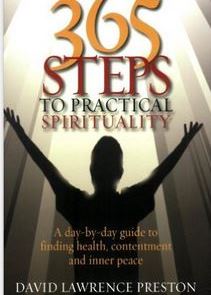One of the greatest statements on living simply is to be found in E. F. Schumacher’s book, ‘Small Is Beautiful: A Study of Economics As If People Mattered’. The chapter entitled Buddhist Economics pointed out that consumption is merely a means to an end. Our aim, he argued, ‘should be to obtain the maximum well-being with the minimum of consumption.’
Using clothing as an example, he suggested that the most economically efficient approach would be to provide warmth, comfort and an attractive appearance for everyone, with the least amount of effort and minimum destruction of natural resources. Collecting clothes we hardly ever wear simply doesn’t make sense. We could choose to toil less and have more time for other pursuits. This would also put less pressure on the environment.
When we go for maximum well-being with minimum consumption, we help to make the world a kinder, gentler place, and it doesn’t mean depriving ourselves because we’re gaining much more than we lose, including time for ourselves and our loved ones.
©David Lawrence Preston, 22.7.2017
Follow me on Facebook and Twitter @David_L_Preston
How to Books, 2007

Leave a Reply